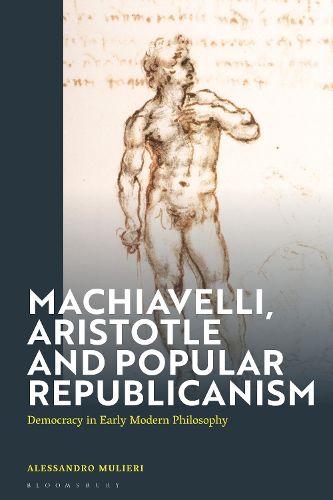Readings Newsletter
Become a Readings Member to make your shopping experience even easier.
Sign in or sign up for free!
You’re not far away from qualifying for FREE standard shipping within Australia
You’ve qualified for FREE standard shipping within Australia
The cart is loading…






Machiavelli, Aristotle, and Popular Republicanism offers the first comprehensive study of the relationship between Machiavelli, Aristotle, and the Aristotelian tradition. Alessandro Mulieri shows that the conceptual language of Aristotelianism not only shaped some of Machiavelli's most radical ideas but also played a key role in the development of his popular republican thought and his critique of classical republicanism. Employing an interdisciplinary approach that blends the history of political thought, political theory, and the history of philosophy, the book presents an original interpretation of Machiavelli's engagement with five Aristotelian themes: the nature of political science, the relationship between virtue and fortune, the preservation of tyranny, the premodern notion of democracy as "the rule of the poor", and the prudence of the multitude. By analysing a wide range of Latin and vernacular Aristotelian texts circulating in Machiavelli's time, alongside works by several Renaissance thinkers, the book addresses longstanding challenges in interpreting Machiavelli's relationship with ancient, medieval, and early modern sources, revealing the selective and profoundly strategic nature of his engagement with the premodern tradition.
$9.00 standard shipping within Australia
FREE standard shipping within Australia for orders over $100.00
Express & International shipping calculated at checkout
Stock availability can be subject to change without notice. We recommend calling the shop or contacting our online team to check availability of low stock items. Please see our Shopping Online page for more details.
Machiavelli, Aristotle, and Popular Republicanism offers the first comprehensive study of the relationship between Machiavelli, Aristotle, and the Aristotelian tradition. Alessandro Mulieri shows that the conceptual language of Aristotelianism not only shaped some of Machiavelli's most radical ideas but also played a key role in the development of his popular republican thought and his critique of classical republicanism. Employing an interdisciplinary approach that blends the history of political thought, political theory, and the history of philosophy, the book presents an original interpretation of Machiavelli's engagement with five Aristotelian themes: the nature of political science, the relationship between virtue and fortune, the preservation of tyranny, the premodern notion of democracy as "the rule of the poor", and the prudence of the multitude. By analysing a wide range of Latin and vernacular Aristotelian texts circulating in Machiavelli's time, alongside works by several Renaissance thinkers, the book addresses longstanding challenges in interpreting Machiavelli's relationship with ancient, medieval, and early modern sources, revealing the selective and profoundly strategic nature of his engagement with the premodern tradition.